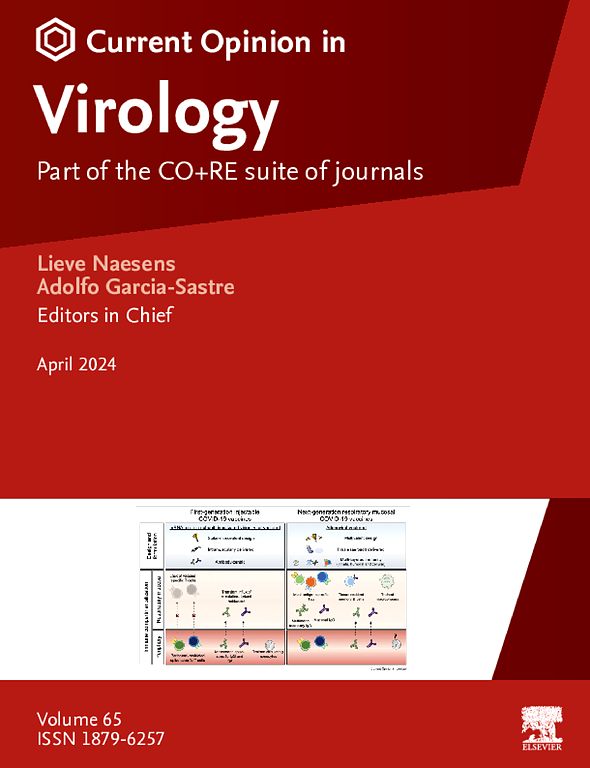Recent advances in animal models of lymphomagenesis caused by human γ-herpesviruses
IF 5.1
2区 医学
Q1 VIROLOGY
引用次数: 0
Abstract
The two human γ-herpesviruses Epstein Barr virus (EBV) and Kaposi sarcoma-associated herpesvirus (KSHV) cause around 2–3% of all cancers in man. Their exclusive tropism for humans and associated lack of small animal models has impeded the dissection of individual viral gene contributions to tumor formation and of protection by distinct immune responses that are observed in virus carriers. Mice with reconstituted human immune systems (humanized mice) now offer the possibility to study these questions and to develop adoptive antibody and T cell transfers against EBV- and KSHV-associated pathologies. Based on such protective immune responses, vaccine candidates can then be developed to prophylactically and therapeutically induce immune control, similar to the one that avoids virus-associated pathologies in the vast majority of infected individuals.
人类γ-疱疹病毒所致淋巴瘤动物模型的最新进展
两种人类γ-疱疹病毒爱泼斯坦巴尔病毒(EBV)和卡波西肉瘤相关疱疹病毒(KSHV)导致约2-3%的人类癌症。它们对人类的专一性和相关小动物模型的缺乏阻碍了对单个病毒基因对肿瘤形成的贡献和在病毒携带者中观察到的独特免疫反应的保护的解剖。具有重组人类免疫系统的小鼠(人源化小鼠)现在提供了研究这些问题和开发针对EBV和kshv相关病理的过继抗体和T细胞转移的可能性。基于这种保护性免疫反应,然后可以开发候选疫苗,以预防性和治疗性地诱导免疫控制,类似于在绝大多数感染者中避免病毒相关病理的疫苗。
本文章由计算机程序翻译,如有差异,请以英文原文为准。
求助全文
约1分钟内获得全文
求助全文
来源期刊

Current opinion in virology
VIROLOGY-
CiteScore
11.80
自引率
5.10%
发文量
76
审稿时长
83 days
期刊介绍:
Current Opinion in Virology (COVIRO) is a systematic review journal that aims to provide specialists with a unique and educational platform to keep up to date with the expanding volume of information published in the field of virology. It publishes 6 issues per year covering the following 11 sections, each of which is reviewed once a year: Emerging viruses: interspecies transmission; Viral immunology; Viral pathogenesis; Preventive and therapeutic vaccines; Antiviral strategies; Virus structure and expression; Animal models for viral diseases; Engineering for viral resistance; Viruses and cancer; Virus vector interactions. There is also a section that changes every year to reflect hot topics in the field.
 求助内容:
求助内容: 应助结果提醒方式:
应助结果提醒方式:


